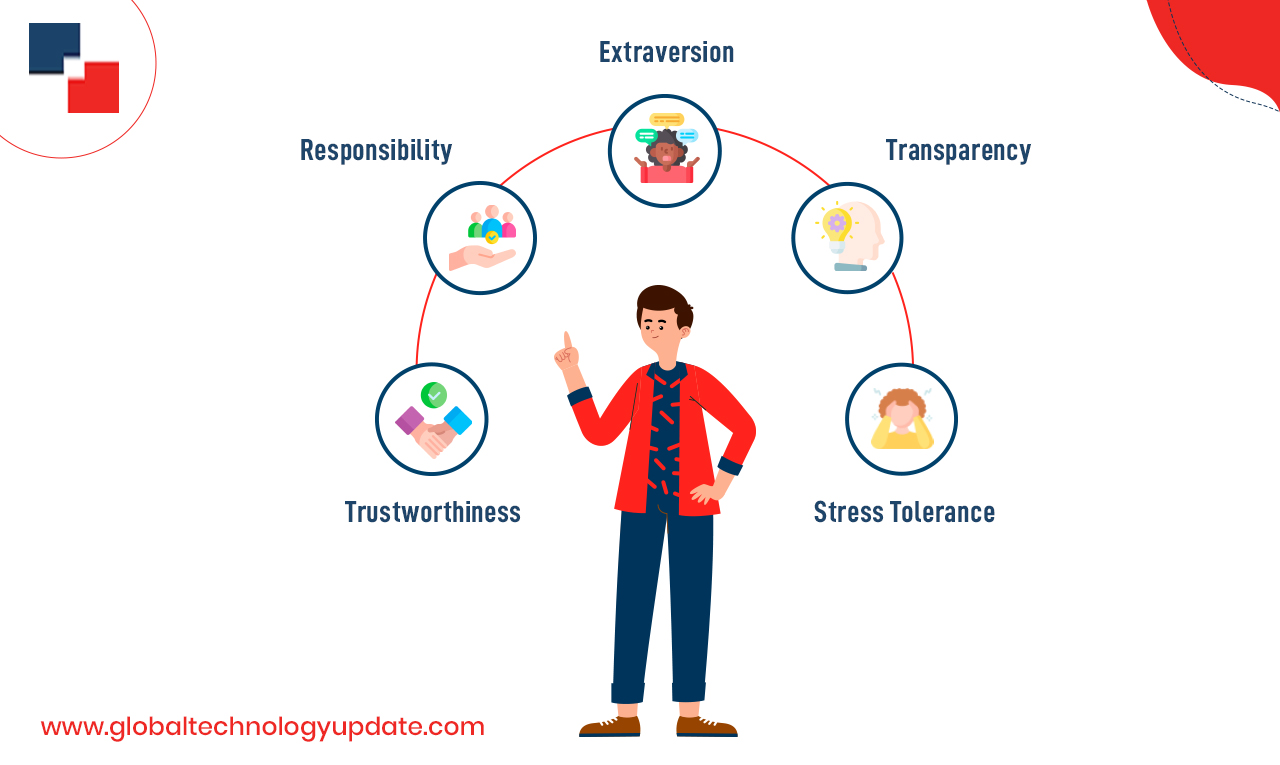Human personality generates a wide range of unique ideas to define and measure the persona. Humans have often investigated what makes us act the way we do. A person’s environment and personality are just two examples of the many factors that can influence behavior.
Each person’s thoughts, feelings, and behaviors make up their individual personality. These factors can affect our friendships, careers, and hobbies. Researchers have streamlined the majority of people’s lives. By focusing on an individual’s traits and patterns, researchers can predict or explain behavior.
The “Big Five” or Five-Factor Model classifies five different aspects of an individual’s personality. Every personality trait reveals something about a person’s feelings, thoughts, and deeds. In the field of personality research, this model is very common.
According to the top five human personality models, a person’s personality can be classified based on the following traits: trustworthiness, responsibility, extraversion, transparency, and stress tolerance.
Each characteristic evaluates a distinct aspect of the human personality.
Trustworthiness
Trustworthiness measures a person’s tendencies toward social harmony. How you treat others is referred to as Agreeableness. It depends on how considerate and helpful you are towards other people. This trait shows how well the person gets along with others, how cooperative or skeptical they are, as well as how they might work in a group.
Responsibility
Responsibility measures a person’s care, organization, and self-control. It predicts productivity, especially in lower-level jobs. Conscientiousness is thoughtfulness, impulse control, and goal-oriented behavior. Highly conscientious people typically have strong organizational skills and pay close attention to the specifics of their work. They are considerate of others, organized, and able to meet commitments. People who score lower on this primary personality trait have a lower level of structure and organization in their lives than those who score higher. They may procrastinate to meet deadlines and miss them.
Extraversion
Extraversion includes excitability, sociability, talkativeness, assertiveness, and high emotional expression. Extraverts are social and energetic. They get energized and excited by being around people. Extroversion indicates sociability and talkativeness. Extroverts are more assertive and confident, and they recharge from socializing, while introverts prefer solitude and introspection.
Transparency
Transparency shows a person’s creativity and imagination. This quality is commonly used to describe one’s level of thought or creativity. It means maintaining an open mind, being creative, and being willing to try out new things. Transparency, referred to as the availability of learning, highlights the values of creativity and understanding.
imagination and insight the most. Open people are interested in many things. They are eager to learn new things and have new experiences, and they have a natural interest in the outside world and in people in general. Individuals who have a high score in this area are likely to be creative and curious, while people who have a low score are possibly to stick to conventional norms and stay in their comfort zone.
Stress tolerance
Stress Tolerance is a fifth and final characteristic of a person. It assesses emotional control, including anxiety and sadness. If someone scores highly in this area, they may be prone to those emotions and have low self-esteem. People with lower scores might be more willing to take risks. Anxiety is characterized by moodiness, sadness, and emotional instability. People with high neuroticism have a greater propensity to struggle with unstable moods, anxiety, irritability, and depression. People with a low level of this personality trait tend to be more emotionally resilient and stable overall.
overview
Personality tests can illuminate your various traits and help you understand yourself. Despite its limitations, a test can help you identify your strengths and weaknesses. If you have limitations, a test can help you identify your abilities and shortcomings. The tests may help you solve your issues in a new way.
If one of your character traits negatively affects your life or relationships, you may want to talk to a licensed therapist. Psychologists may help you recognize and modify your personality.





